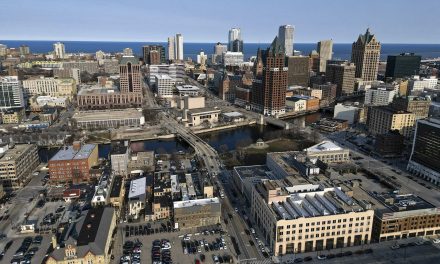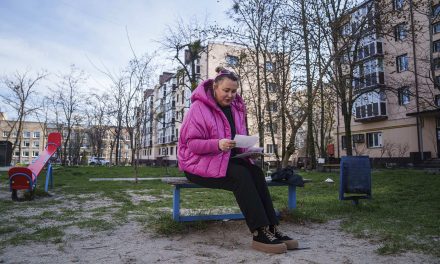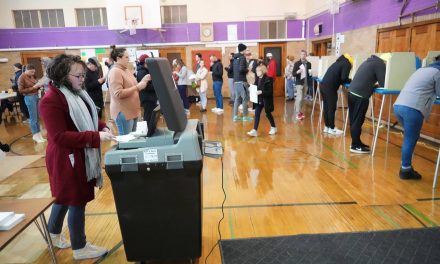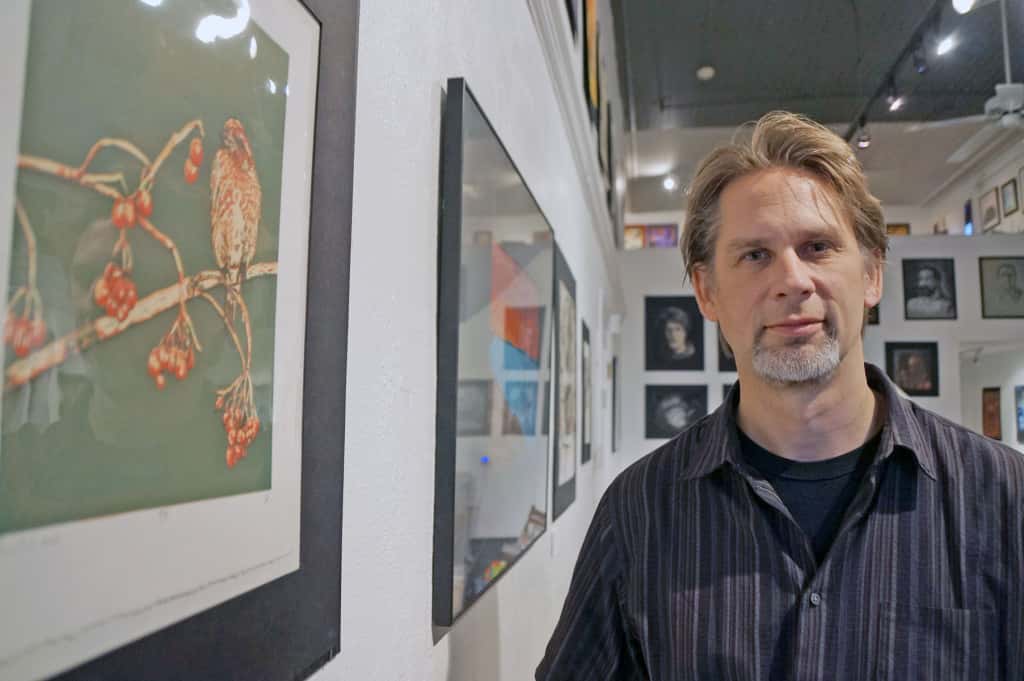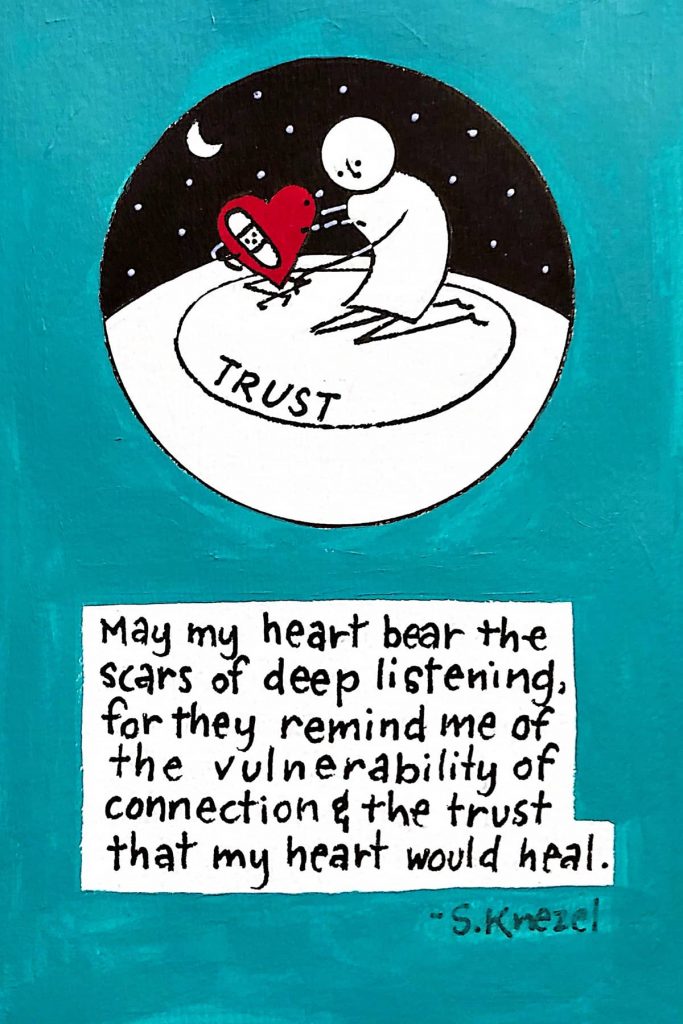
This explainer series, Catholic Doctrine on Immigration, explores how the teaching of faith and Scriptures intersect with immigration policy, focusing on the role of Milwaukee’s Catholic Church in responding to enforcement, labor dynamics, and family separation. Through detailed reporting across legal, economic, and pastoral contexts by Milwaukee Independent staff members, the series examines how Church teaching shapes institutional action and informs the Church’s engagement on national immigration issues. mkeind.com/catholicimmigration
For decades, Catholic social teaching has offered a consistent moral critique of U.S. immigration policy, particularly in response to enforcement strategies that prioritize punishment over human dignity.
As federal crackdowns have intensified and deportation machinery expanded, the Catholic Church has positioned itself not as a partisan voice, but as a counterbalance to unchecked state power. Such a confrontation is not political theater. It is a doctrinal imperative, rooted in centuries of Catholic tradition and formalized in modern encyclicals and pastoral guidance.
Central to this tradition are three core principles: the right to migrate, the right of states to regulate borders, and the obligation to protect human dignity.
The tension between these ideas is not theoretical either. It plays out daily in immigration courts, detention centers, and border patrol checkpoints. Catholic teaching acknowledges the sovereignty of the state but insists that this sovereignty is not absolute. When laws result in family separation, unsafe detainment, or the denial of due process, the Church argues that those laws must be confronted — not quietly obeyed.
One of the key areas where this tension is most visible is in the treatment of undocumented individuals already living in the United States. The Church draws a sharp distinction between legal status and moral worth.
According to doctrinal guidance outlined in the Catholic Elements of Immigration Reform, immigration enforcement becomes unjust when it targets individuals who are already contributing to society, raising families, and seeking lawful resolution. It is especially true when the system itself offers no viable pathway to regularization.
In such cases, the Church views enforcement not as lawfulness but as cruelty.
This framework is particularly relevant to recent shifts in federal policy. As immigration enforcement has expanded beyond border zones into worksites, schools, and homes in distant places like Milwaukee, the Church has condemned what it sees as a transformation of the state into an instrument of fear.
The moral critique is not limited to high-profile deportations. It extends to surveillance, workplace raids, and the psychological toll inflicted on mixed-status families. Milwaukee has been unable to escape those dynamics.
The Archdiocese has documented the effects of aggressive enforcement in southeastern Wisconsin, where families in local parishes have faced detention, legal uncertainty, and threats of removal. Church-run ministries in Milwaukee have responded by providing accompaniment to immigration hearings, connecting families with legal resources, and creating community forums to educate parishioners about their rights.
These interventions are not just acts of charity. They are expressions of Church doctrine in practice. What makes the Church’s position distinct is that it does not propose mere policy tweaks. It offers a theological reframing. From its perspective, a nation’s moral legitimacy is tested by how it treats the stranger, not how effectively it enforces lines on a map.
The Church’s position on immigration enforcement has often placed it at odds with both political parties. While it affirms a nation’s right to secure its borders, it draws a moral boundary around how that security is exercised.
Detention of asylum seekers, especially families and children, is one such line. The Church has repeatedly stated that the dignity of the person cannot be suspended in the name of national interest. Enforcement actions that ignore this principle are viewed as unjust and morally corrosive to the broader society.
This teaching is not abstract theology. It informs direct engagement at the parish level, where clergy and lay leaders are trained to respond to ICE raids, assist families during legal proceedings, and help with housing or childcare when a parent is detained.
The Archdiocese of Milwaukee has documented cases in which this work has prevented family fragmentation or helped a parishioner remain in the country while awaiting legal resolution. These efforts are often conducted quietly, but they represent a deliberate stance. The Church has made it clear it will not cooperate with policies that undermine human dignity.
Across the country, diocesan offices have taken similar actions, but the work in Milwaukee is instructive because it demonstrates how Catholic social teaching is applied in a context far from the border.
The narratives that dominate immigration coverage often focus on Arizona deserts or Texas checkpoints. But the moral and legal implications extend deep into interior states like Wisconsin, where immigrant families live, work, and worship. It is a place where enforcement is no less severe, only less visible.
Catholic social teaching also challenges the logic of criminalization that underpins much of U.S. immigration enforcement. By framing undocumented presence as a violation of law rather than a symptom of structural exclusion, the system shifts blame onto individuals while ignoring the economic and political forces that drive migration. The Church rejects this narrative.
Instead, it calls for what it terms “conversion of heart.” That is not just personal compassion, but public acknowledgment of systemic failure. Such conversion is not rhetorical. It requires legislative change.
The Church supports comprehensive reform that includes earned legalization, family reunification, and just labor protections. But it also calls for an end to enforcement policies that traumatize communities and destabilize families.
In its view, the nation cannot legislate morality while simultaneously deploying fear as a policy tool.
In Milwaukee and elsewhere, this teaching translates into action. It informs how dioceses allocate resources, train volunteers, and coordinate advocacy. It shapes pastoral letters and public statements. And it guides the Church’s refusal to remain silent when policy contradicts doctrine.
This is not civil disobedience for its own sake. It is fidelity to a tradition that places the person, not the passport, at the center of moral analysis.

